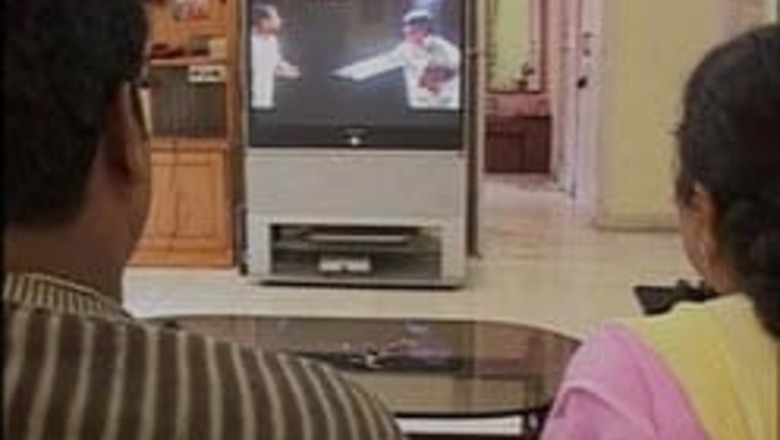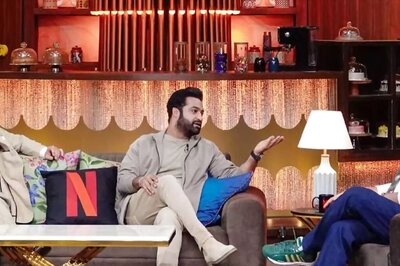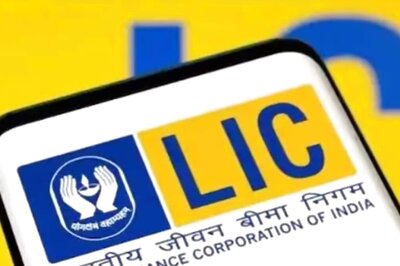
views
Who will blink first? The impasse between the television producers and the workers federation has sparked off a chain reaction affecting broadcasters and advertisers. In response they have yanked the carpet from under their viewers’ feet. Three days on and there is still no sign of fresh programming on TV screens.
Figures have been thrown about. Yet, there is no one point that all parties agree on. President of the Federation of Western Indian Cine Employees Dharmesh Tiwari, says that they have demanded a hike of only 7.5 per cent over two years for four out of the 22 crafts within the union.
Producers say that they are asking for hikes that go up as much as 80 per cent -120 per cent. Head of Synergy Adlabs Media Sidhartha Basu says, “Most producers work on slim margins of 10 per cent. The contracts that they have with broadcasters are for a fixed number of episodes. If they have to increase workers wages, contracts with the broadcasters will have to re-negotiated.”
CEO of Zee Entertainment Enterprises Punit Goenka says, “The workers are asking for a unilateral increase in cost. This is just not acceptable. We will stand by our producers.”
Business head of Sony Entertainment Television Albert Almeida, seconds the opinion, “Right now there are only four crafts in the union that are asking for increases. Who is to say that if we give in to their demands, the others won’t join in?”
However, media analysts have a different story to tell. “Broadcasters have categorically claimed that rather than increase rates across the board, they will reduce the number of programming hours. They may be using this crisis to re-negotiate contracts. They will stand firm on their stance. I don’t see the conflict getting resolved before November 24,” says an analyst who has tracked the sector for over a decade.
Basu adds, “Except for the big guys, very few broadcasters are in the black. Most of the new channels that have come in have a break-even period of five to seven years. They came in on the back of strong private equity. Now everything has changed. Funding has evaporated. There was volume. Now that is getting cut down.”
An increase in production costs would have to be passed on to advertisers by the broadcasters. Media buyers say there is certainly no chance that they will agree to higher ad rates.
The Advertising Agencies Association of India has requested all its members to keep ad inventory on channels as of now. Chairman of Madison World Sam Balsara says, “We don’t want ad rates to go up. From what we have been told, we think that the current demand of the working fraternity is unreasonable. We are requesting our clients to support the broadcasters as this would be in their long-term interests. We have said that we won’t pull out or ask for rebates for at least eight-10 days.”
The GEC (General Entertainment Channel) Forum is expecting the strike to continue for at least two weeks—in the worst case scenario—before a resolution is reached.
With 14 days of re-runs, it is obvious that TRPs will take a hit as viewership will shift.
“We are expecting a drop of 30 per cent - 60 per cent in viewership,” says Balsara.
PAGE_BREAK
That would mean a huge loss for the advertisers. Consider this: The ad-spend on TV is Rs 7,000 crore. It works out to Rs 134 crore a week. GECs account for 50 per cent of this spend. Advertisers are expecting to take a hit of Rs 70 crore if the strike goes on for two weeks.
“The average cost of producing a daily fiction soap is Rs 5 lakh. We work on margins that vary from 5 per cent -10 per cent. If we agree to the workers’ hike, the cost of an episode goes up to Rs 5.7 lakh. We will be out of business,” says the CEO of a production house. “The workers will have to cut their demand by at least 50 per cent. And the extra Rs 35,000 will have to be split between us and the broadcasters. Expecting us to bear the whole brunt is unreasonable,” he adds.
The media analyst agrees, “The amount of the hike will have to be split in a 70:30 ratio, with the broadcasters paying up to Rs 25,000 at least. Producers have very little room to spare.”
Meanwhile, President of the Producers’ Core Committee Mukesh Bhatt has called for workers, broadcasters and producers to sit down and have a talk. But the broadcasters refuse to do this.
“The workers and producers are both unclear on the whole issue. Let them resolve it first and then come to us with a clear idea of what they want. If the producers expect us to just blindly agree to absorb wages, they are mistaken. We have contracts with them. We can just throw it at them and force them to adhere to it. We are not doing that because we know the problem is genuine,” says the head of a GEC.
A potentially serious problem is a drastic change in the viewing habits of audiences. In case of a prolonged strike, broadcasters may find it very difficult to lure back audiences to family sagas and reality song-and-dance shows.
Workers are losing daily wages, producers have halted shooting, broadcasters are losing viewership and advertisers are paying good money for re-runs. Someone has to give way. If not, the next few weeks could see smaller GECs shutting shop and that does not bode well for any party.
(Abhishek Raghunath is Features Writer with the new business magazine to be launched by Network18 in alliance with Forbes, USA)




















Comments
0 comment